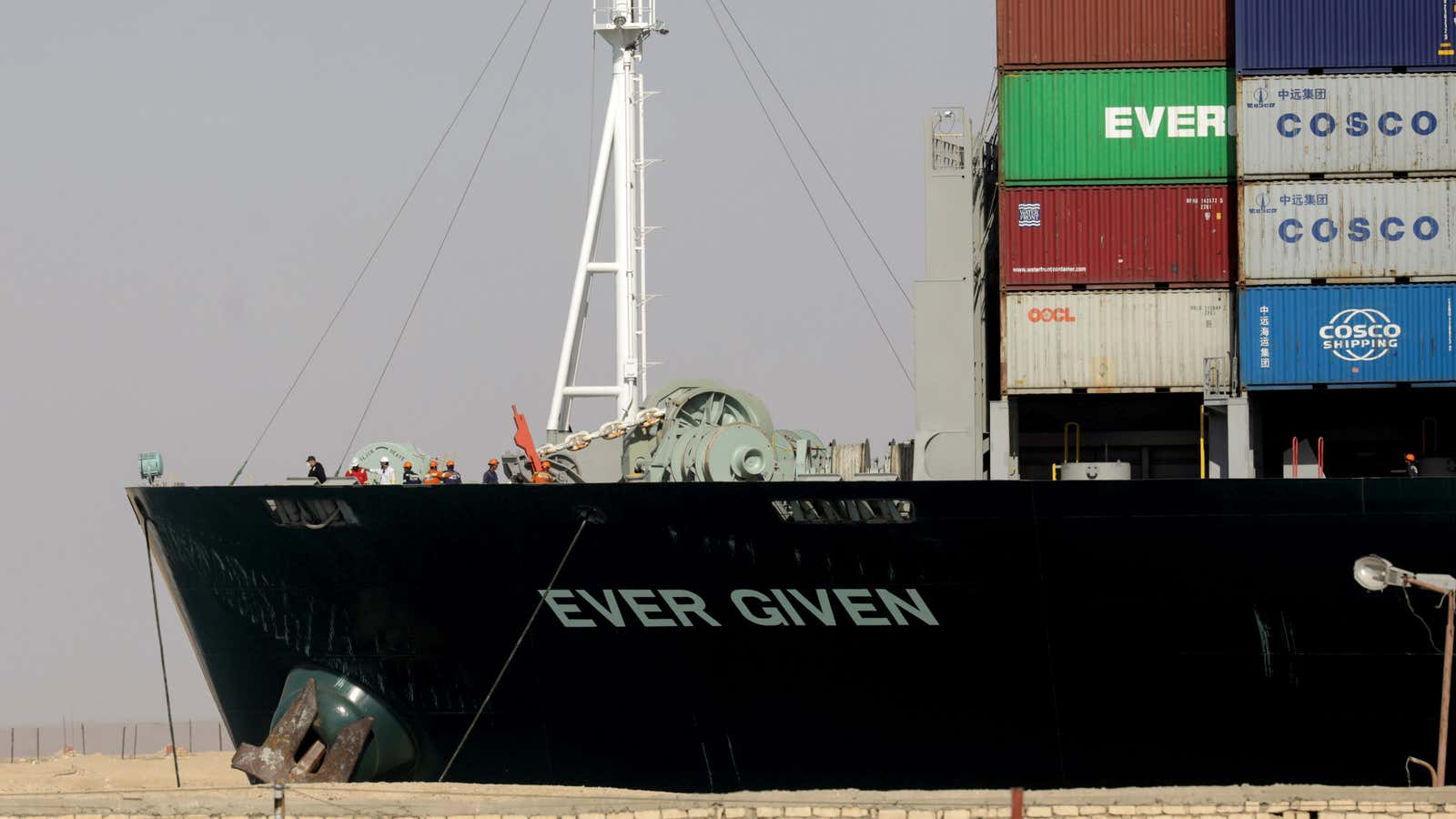The Ever Given spent six days stuck in the Suez Canal. Then it spent more than three months stuck in the Suez Canal’s bureaucracy. Egypt’s Suez Canal Authority (SCA) had refused to release the container ship and its cargo and crew without being paid salvage fees and damages worth nearly $1 billion.
On July 5, after rounds of legal proceedings and negotiations, the Ever Given’s owners and insurers reached a compensation agreement with the SCA, which will set the 220,000-ton megaship free once more.
How much did the Ever Given blockage cost?
What the Ever Given’s accident cost depends on whom you ask. One estimate, from the maritime data company Lloyd’s List, estimated that the ship held up $9.6 billion in trade each day, based on the volume and value of goods flowing eastwards and westwards through the canal.
The Suez Canal typically processes about 50 ships a day. Hundreds of ships were blocked from the route until the ship was freed on March 29. If a ship’s owner decided to reroute a vessel around southern Africa, it would incur roughly $30,000 in fuel expenses daily, according to Refinitiv, the financial market data company. Fees for late deliveries of goods ran to tens of thousands of dollars per day.
The SCA claimed to lose up to $15 million for each day of the Ever Given’s obstruction of the Suez. It had initially demanded $272 million in expenses, a bonus of $300 million for helping dislodge the ship, and another $344 million in damages. Subsequently, the SCA reduced its claim to around $550 million.
The final details of the compensation agreement were not released. But Osama Rabie, the chairman of the SCA, told a television channel that the SCA would receive a new tugboat, with a pulling capacity of 75 tons, as a part of the settlement.
The Ever Given was initially bound for Rotterdam, but its destination now is unclear. Nine of the ship’s crew members have already been allowed off the ship; the remaining 17 will be free to leave as well, subject to their employer’s plans.
The ship’s 20,000-odd containers, carrying cargo worth nearly $1 billion, can proceed to their destinations as well, so that the goods they hold—Nike shoes, Lenovo laptops, IkEA furniture, sex toys, bicycles, wearable blankets—can be delivered to their customers. The containers themselves will go back into circulation in the shipping industry, which is already facing a dire shortage of containers—one that the Ever Given’s seizure by Egyptian authorities only made worse.
But the legal aftermath of the accident is likely to continue. In a bid to limit its liability, the ship’s owner, a Japanese firm named Shoei Kisen Kaisha, has filed a suit in London against the ship’s Taiwanese operator, Evergreen Marine Corp, as well as several other parties.
